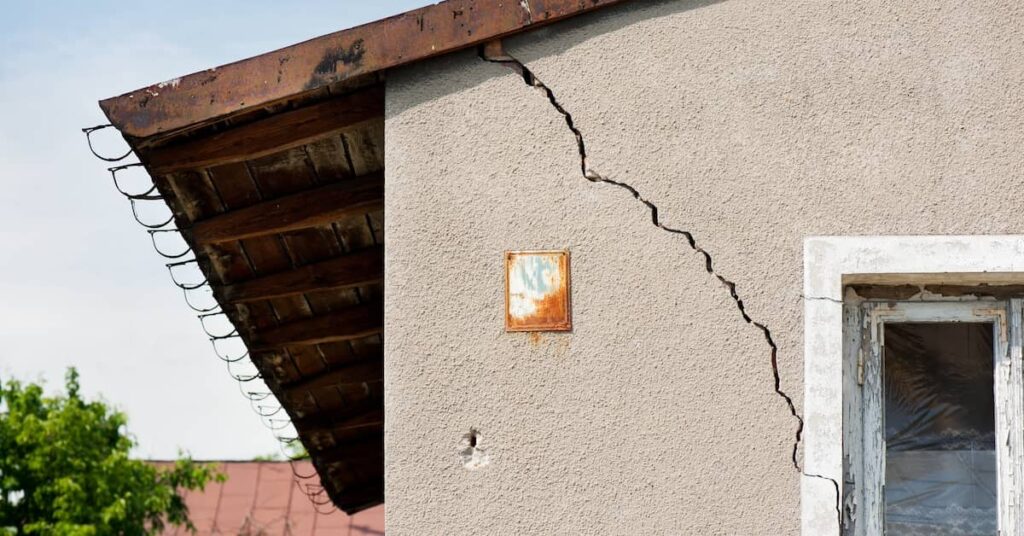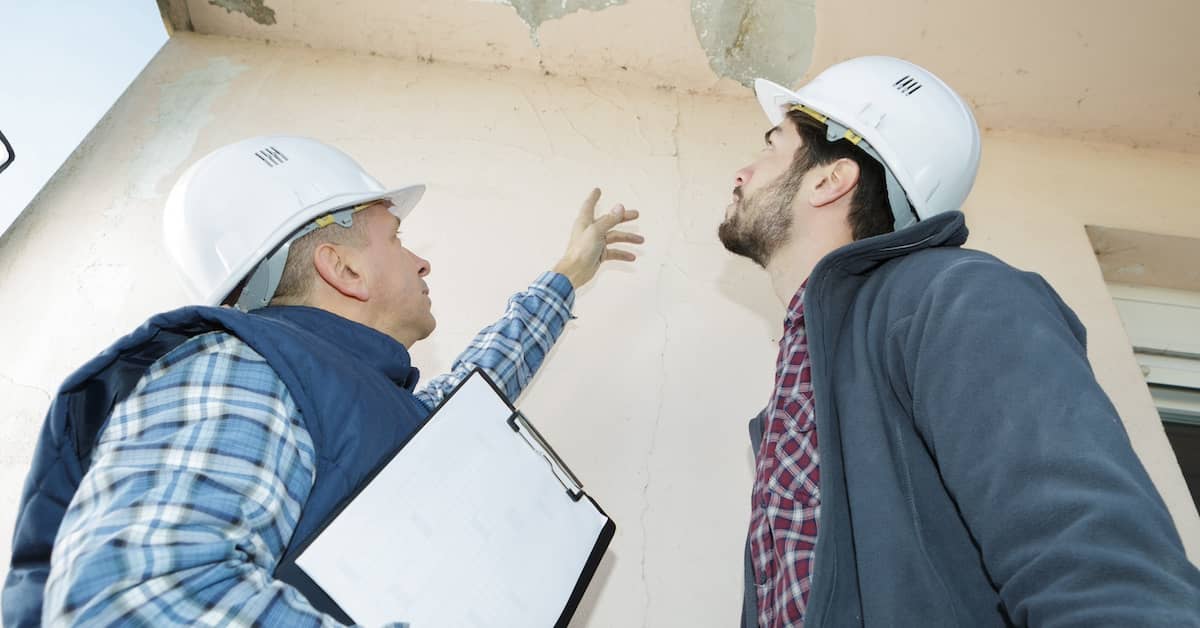
Construction Defect Litigation: The Statutes of Limitations & Repose
In Colorado, the amount of time a homeowner has to take legal action for defective construction can be impacted by one of two statutes:
- The statute of limitations
- The statute of repose
Property owners who intend to file a construction defect lawsuit against a builder, architect, or similar construction professional must do so within these statutes’ timeframes. This makes it essential to know if the Colorado statute of repose or statute of limitations applies to your specific situation.
At Burg Simpson Law Firm, we have decades of experience helping single-family homeowners and HOAs navigate the complexities of construction defect litigation. If you are facing the frustration or dangers of a defective property, we are here to listen, provide straightforward advice, and guide you toward the best solution.
To better understand if the Colorado statute of repose or statute of limitations applies to your construction defect claim, call Burg Simpson at 303-792-5595 to schedule a confidential and complimentary consultation. We fight for the rights of property owners in Denver, Boulder, and throughout Colorado.
Colorado’s Construction Defect Statute of Limitations
In Colorado, the statute of limitations generally holds that claims for construction defects must be filed within two years from the date the property owner becomes aware of—or should have become aware of—the defect (see Colo. Rev. Stat. § 13-80-104). The variance between a strict two years from the date of construction and the date the defect is discovered acknowledges that many construction defects are not immediately apparent and may only become evident over time or under specific conditions.
While two years from the date a defect is discovered sets the statute of limitations in motion under most circumstances, some scenarios can extend the period longer, providing property owners additional time to file a claim. For example, if it can be shown that the responsible party took steps to hide the defect or misled the buyer about the property’s condition, the statute of limitations may be tolled (paused) until the homeowner discovers the defect or the concealment ends.
At Burg Simpson Law Firm, our construction defect attorneys have extensive experience navigating the statute of limitations and leveraging its provisions to protect the best interests of our clients. We understand the strategies builders and developers may employ to challenge the timeliness of a claim. We are prepared to work quickly to ensure your claim is filed within the appropriate time frame to help protect your right to seek fair compensation.
Colorado Construction Defect Statute of Repose
Colorado’s Statute of Repose differs from the statute of limitations governing construction defect lawsuits. While the clock on a statute of limitations begins to tick when the defect is noticed, the statute of repose starts upon “substantial completion” of the “improvement to real property” (see Colo. Rev. Stat. § 13-80-104(1)(a)).
Substantial completion occurs when a construction project is sufficiently complete and the owner can use the building for its intended purpose. This may be true even if minor items still need to be finished.
The Colorado statute of repose provides an unconditional limit for when a claim can be filed. A homeowner or association may not successfully pursue a construction defect claim if this deadline has expired, even if the defect has yet to be discovered.
Six-Year Standard Period with Potential for Extension
In most cases, the Colorado statute of repose allows claims to be filed within six years from the date of substantial completion. However, state law allows this period to be extended under specific circumstances. If a defect is discovered in the fifth or sixth year following substantial completion, the statute of repose can be extended to eight years. This provision ensures that property owners have adequate time to bring forth a claim even if a defect surfaces towards the end of the initial repose period.
The Colorado statute of repose underscores the importance of vigilance for property owners, even many years after the completion of construction. It encourages owners to conduct regular inspections and maintenance of their properties to identify potential defects before the statute of repose expires. Understanding the implications of this statute is essential for safeguarding your rights and ensuring you do not forfeit the opportunity to seek compensation for construction defects.
Triggering Events for the Statutes
Events that serve as the starting point for both statutory periods may include:
- Discovery of Physical Manifestations: When a defect becomes apparent through physical signs, such as water intrusion, cracking walls, or uneven floors.
- Structural Failures: When more severe manifestations—such as structural failure or significant safety hazards—become apparent.
- Official Diagnoses or Reports: When an expert issues a report diagnosing a construction defect or a professional inspection identifies issues.
- Warranty Expirations: When a builder’s or manufacturer’s warranty expires, especially if defects were expected to be covered but emerge after coverage ends.
The legal team at Burg Simpson Law Firm has decades of experience analyzing triggering events to determine which statutes are relevant for each claim. With our comprehensive understanding of Colorado construction law, we can determine when the statutory clock starts to help ensure timely legal action. Reach out today for a FREE case review to discuss your options and learn more about your rights.
Procedural Steps Before Filing a Lawsuit
In Colorado, the pathway to resolving construction defect disputes is guided by a series of procedural steps mandated by the Colorado Construction Defect Action Reform Act (CDARA). This framework encourages resolution between property owners and builders or contractors with the goal of avoiding litigation.
The process for filing a construction defect claim in Colorado involves:
1. Notice of Claim
The construction defect claims process begins with the property owner serving a notice of claim to the builder or contractor. This notice must detail the alleged construction defects and allow the builder to inspect the property and evaluate the claims. Our attorneys are experienced in drafting comprehensive notices that clearly articulate the scope and severity of defects, setting a solid foundation for the claims process.
2. Builder’s Inspection
Upon receipt of the notice, the builder has a right to inspect the property to verify the claims. Our legal team coordinates with all parties to ensure the inspection is thorough and respects the property owner’s rights and privacy. We may also advise having independent experts present during this inspection to ensure an unbiased assessment.
3. Offer to Repair or Settlement Offer
After the inspection, the builder may offer to repair the defects or propose a settlement. Our role is to evaluate these offers, negotiate terms that genuinely address your concerns, and ensure that any agreed repairs meet the highest quality standards. We aim for resolutions that are not just quick fixes but long-term solutions.
4. Mediation
If the parties cannot agree on a repair or settlement, the CDARA encourages mediation before litigation. Mediation is a confidential process where a neutral third party helps the disputing parties reach a settlement. Our lawyers have a strong track record in mediation. We leverage our decades of negotiation experience to help achieve favorable outcomes before a trial becomes necessary.
5. Filing a Lawsuit
Should mediation fail to resolve the dispute, filing a lawsuit is the next step. Our team prepares robust cases—grounded in detailed evidence and expert testimony—to present in court. We will guide you through every phase of the litigation process, from discovery to trial, ensuring you are well-informed and supported throughout.
By adeptly managing the procedural steps outlined in CDARA, the lawyers at Burg Simpson strive to resolve construction defect disputes efficiently and effectively, often without the need for litigation. This approach saves time and resources and may be favorable in some instances. However, as proven trial lawyers, we are always prepared for court proceedings when necessary.
Burg Simpson Is Here to Help
Choosing the right legal representation can directly affect your results when facing construction defect issues. At Burg Simpson Law Firm, we understand the complexities of the Colorado statute of repose and are dedicated to protecting the rights and interests of property owners.
Our firm offers:
- Unmatched Experience: With decades of experience in construction defect litigation, our attorneys bring a depth of knowledge and a track record of success. We’ve handled a wide range of cases, from individual homes to large-scale developments, providing our clients with the experience needed to navigate these complex legal issues.
- Client-Centered Approach: We pride ourselves on our commitment to personalized service, ensuring every client receives the attention and support they deserve. Our team works closely with you, keeping you informed and involved at every stage of the process.
- Proven Results: Our firm has secured significant settlements and verdicts for our clients, reflecting our relentless pursuit of justice and fair compensation. We fight tirelessly to achieve outcomes that address the immediate and long-term impacts of construction defects.
- Resourcefulness and Resilience: Facing off against builders, developers, and insurance companies requires a formidable legal team. Our award-winning attorneys have the resources and resilience to stand up to these powerful adversaries, ensuring your rights are defended vigorously.
- No Cost Initial Consultation: We offer a free, no-obligation consultation to discuss your case and assess the best course of action. This initial meeting lets us understand your situation in detail and helps give you an informed perspective on your legal options.
During your initial consultation, we will carefully review your claim, discuss how Colorado’s statute of repose and limitations may impact your options, and help you determine how best to proceed.
Contact Us Today to Learn More
To schedule your FREE consultation with one of our experienced construction defect lawyers, contact Burg Simpson online or call our Denver office today. With decades of experience working within the timeframe outlined by the Colorado statute of repose, we are prepared to work on your claim and help protect your rights and options.






